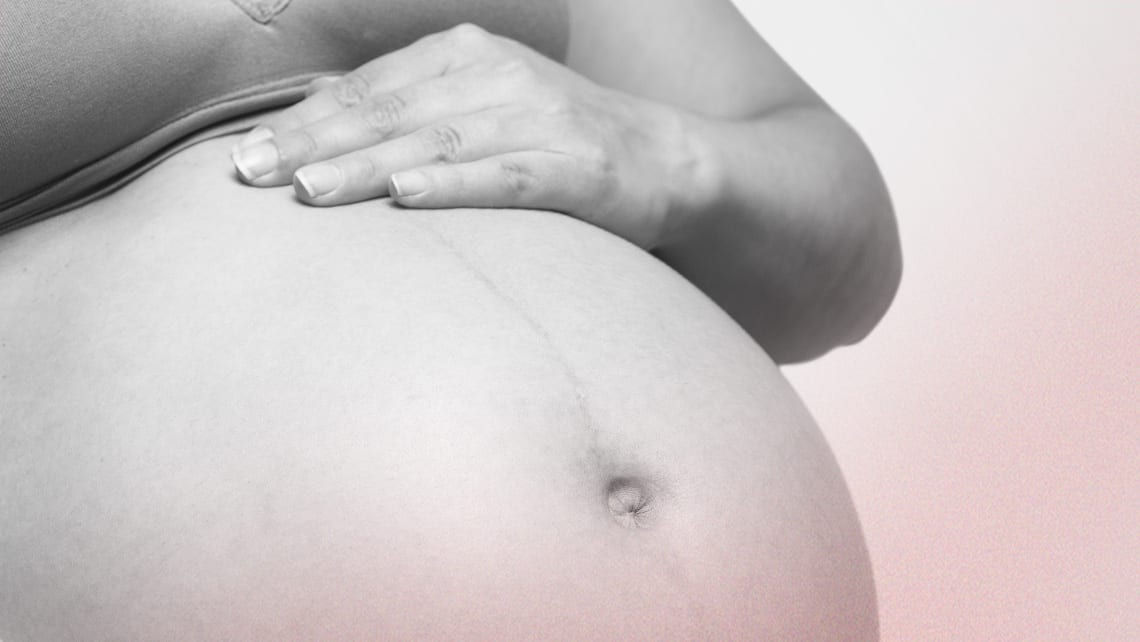
How do I know if I am leaking amniotic fluid in pregnancy?
Índice
What is the amniotic fluid and what are its functions?
Amniotic fluid is a vital element for the development of the baby in the mother’s womb.
Among other things, it protects the baby from injury and heat loss, so it is essential to maintain the right amount of fluid, and amniotic fluid leakage is one of the biggest concerns in pregnancy.
To know if you are leaking amniotic fluid, it is important to be aware of the presence of clear, odourless fluid in your underwear, causing them to become wet more than once a day. In addition, when there’s a large amount of amniotic fluid, decreased fetal movements may be observed, and it is important to consult your obstetrician immediately.
If you suspect you’re leaking amniotic fluid in the first or second trimester of pregnancy, it is advisable to go immediately to the emergency department or obstetrician, as decreased amniotic fluid in this period of pregnancy can interfere with the baby’s growth development and can also be life-threatening for the mother.
I am leaking in pregnancy, is it urine or amniotic fluid due to a ruptured amniotic sac?
In most cases, amniotic fluid leakage is confused with the involuntary loss of urine due to the uterus weight on the bladder.
A way to telling if it is amniotic fluid leakage, urine leakage or just increased lubrication of the vagina is to place an intimate wipe in the underwear and observe the characteristics of the fluid. Normally, urine is yellowish and has an odour, while amniotic fluid is clear and odourless and intimate lubrication is odourless, but may have an egg white appearance, as it does in the fertile period.
Main symptoms and signs of amniotic fluid leakage include:
- Wet underwear, but the fluid is odourless, colourless;
- Wet underwear more than once a day;
- Decreased movement of the baby in the uterus, when there has already been a major loss of fluid.
Pregnant women with risk factors such as high blood pressure, diabetes or lupus are more likely to have amniotic fluid leakage, but this can happen to any pregnant woman.
What are the causes of amniotic fluid leakage?
The causes of amniotic fluid leakage are not always known. However, this may occur due to genital infectious conditions, so it is recommended to consult an obstetrician whenever symptoms such as burning during urination, genital pain or redness, among others, arise.
Other causes that may cause loss of amniotic fluid or lead to a reduction in the amount of amniotic fluid include:
- Partial sac rupture – amniotic fluid begins to leak through a small hole in the sac. It is most common in late pregnancy and usually closes on its own with rest and good hydration;
- Placental problems – the placenta may not be producing enough blood and nutrients for the baby who doesn’t produce as much urine, resulting in less amniotic fluid;
- Medications for high blood pressure, preterm labour, ibuprofen and other medications can affect the baby’s kidneys, decreasing the amount of urine and in turn amniotic fluid. For this reason, the obstetrician should be consulted before taking any medication;
- Abnormalities in the baby – at the beginning of the second trimester, the baby starts swallowing amniotic fluid and passes it in the urine. When amniotic fluid leaks, the baby’s kidneys may not develop properly;
- Feto-fetal transfusion syndrome – in the case of identical twins, one may receive more blood and nutrients than the other, causing one to have less amniotic fluid than the other.
Should I be concerned if leaking amniotic fluid? What should I do?
Treatment for amniotic fluid loss varies according to gestational age:
- In the 1st or 2nd trimester:
You should see your obstetrician immediately for an ultrasound to assess the amount of amniotic fluid and to check for any signs of infection or associated bleeding.
The doctor will usually advise to increase your water intake and rest to avoid further fluid loss. Also, several follow-up visits should be made, usually weekly, to measure the amount of fluid throughout the pregnancy and to check on the health of both the baby and the mother to avoid complications.
- In the 3rd trimestre:
When fluid loss occurs late in pregnancy, it is usually not serious, but if the woman is losing a lot of fluid, the doctor may even choose to anticipate labour.
If the leakage occurs after 36 weeks, it is usually a sign of rupture of the membranes and, therefore, the woman should go to the hospital as labour may be approaching.
Dr Paolo Cirillo, a gynaecologist at Instituto Bernabeu.
